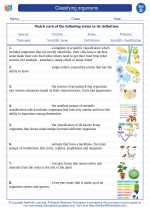Medical Sciences
Medical sciences encompass a wide range of topics related to the study and application of knowledge in the field of medicine. This includes understanding the human body, disease processes, medical treatments, and the development of new medical technologies.
Anatomy and Physiology
Understanding the structure and function of the human body is fundamental to medical sciences. This includes the study of organs, tissues, and systems such as the cardiovascular, respiratory, and nervous systems. Students will learn about the interconnections between different parts of the body and how they work together to maintain health.
Pathophysiology
Pathophysiology explores the mechanisms of disease and how they disrupt normal physiological processes. Students will learn about the causes, progression, and effects of various diseases on the body. This knowledge is crucial for diagnosing and treating medical conditions.
Pharmacology
Pharmacology focuses on the study of drugs and their effects on the body. This includes understanding how drugs are absorbed, distributed, metabolized, and excreted. Students will also learn about the uses, side effects, and contraindications of different medications.
Medical Technology
Advancements in medical technology have revolutionized healthcare. Students will explore various technologies such as medical imaging, diagnostic tests, and therapeutic equipment. Understanding these technologies is essential for modern medical practice.
Study Guide
- What is the role of anatomy and physiology in medical sciences?
- Explain the importance of understanding pathophysiology for medical professionals.
- How does pharmacology contribute to the field of medicine?
- Discuss the impact of medical technology on healthcare delivery.
These topics provide a solid foundation for students interested in pursuing a career in medicine or related healthcare fields. Understanding the intricacies of the human body, disease processes, and medical interventions is essential for providing effective patient care.
.◂Science Worksheets and Study Guides Fourth Grade. Classifying organisms
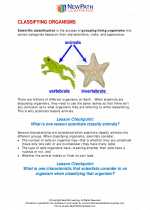
 Worksheet/Answer key
Worksheet/Answer key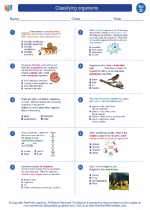
 Worksheet/Answer key
Worksheet/Answer key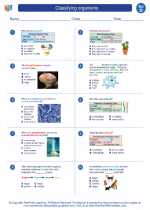
 Worksheet/Answer key
Worksheet/Answer key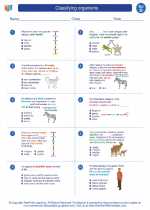
 Vocabulary/Answer key
Vocabulary/Answer key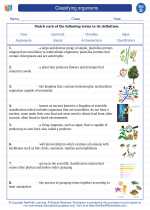
 Vocabulary/Answer key
Vocabulary/Answer key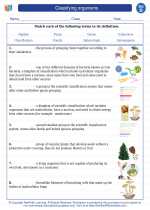
 Vocabulary/Answer key
Vocabulary/Answer key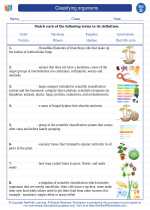
 Vocabulary/Answer key
Vocabulary/Answer key